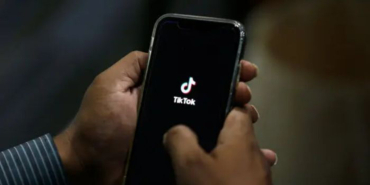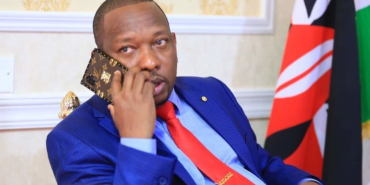Court Denies Teacher’s Bid to Recover Sh166,700 Given to Ex-lover for Business

A recent ruling by the Voi High Court has reinforced the critical importance of formalizing business agreements, particularly when financial dealings intersect with personal relationships.
The court has upheld a lower court's decision, denying a high school teacher's claim for reimbursement of funds he provided to his former partner for a business venture, classifying the contribution as a non-recoverable gift. Mkala Maghanga, the plaintiff, sought to recover Sh166,700 he claimed to have invested in a bar business launched by Phelister Masamo, his former romantic partner. Maghanga asserted that he expected to share in the business's profits and that Masamo verbally agreed to repay the investment.
However, upon the dissolution of their relationship, Masamo allegedly refused to reimburse him, leading Maghanga to pursue legal action. Justice Asenath Ongeri, in affirming the magistrate's court ruling, emphasised the absence of tangible evidence supporting Maghanga's claim that the funds were intended as a loan or capital injection into a joint business enterprise. The court found no documented terms outlining profit-sharing, individual roles, or other specifics that would establish a legally binding business arrangement.
Legal experts assert that financial contributions made without clear documentation or independent witnesses are susceptible to being classified as voluntary gifts, leaving contributors vulnerable in the event of a relationship breakdown.
Maghanga's legal pursuit originated in the magistrate's court, where he argued that his financial contributions constituted business capital. He contended that Masamo acknowledged her obligation to refund the money through conversations and digital communications. However, the magistrate rejected this argument, citing a lack of conclusive evidence.
Undeterred, Maghanga appealed to the High Court, maintaining that an oral agreement had existed between them. He criticised the magistrate’s findings, arguing that WhatsApp messages, receipts, and personal records demonstrated Masamo’s recognition of the funds as a business contribution. He further contended that oral contracts are legally valid, provided there is sufficient supporting conduct and evidence.
Despite these arguments, Justice Ongeri ruled that Maghanga had failed to establish the existence of a binding business agreement. While acknowledging that oral contracts can be enforceable under certain circumstances, the judge emphasised that the provided evidence—WhatsApp messages, handwritten notes, and receipts—was not independently verified, dated, or signed in a manner that clearly indicated an official business partnership.
Masamo, in her defence, refuted Maghanga's claims, asserting that the funds were given purely out of affection. She further portrayed herself as the victim of deception, alleging that Maghanga had concealed his marital status. She maintained that the lawsuit was motivated by bitterness rather than legitimate financial grievances.
The court examined whether mutual consent had existed regarding a joint business arrangement. However, Justice Ongeri concurred with the magistrate’s ruling that no enforceable agreement had been established. The judge observed that the dispute was more indicative of personal fallout rather than a failed commercial venture.
A key factor weakening Maghanga's case was his marital status. The judge noted that if Masamo's decision-making had been influenced by misinformation regarding his relationship status, then any supposed business agreement lacked full transparency and validity.
Moreover, the court reiterated the legal principle that gifts exchanged in romantic relationships are generally irrecoverable unless explicitly defined otherwise in legally binding documentation. While Maghanga claimed Masamo initially agreed to reimburse him but later refused, the judge determined this was merely an extension of the emotional deterioration of their relationship rather than evidence of a breached business contract.








Add new comment